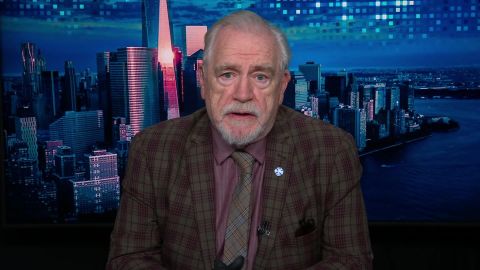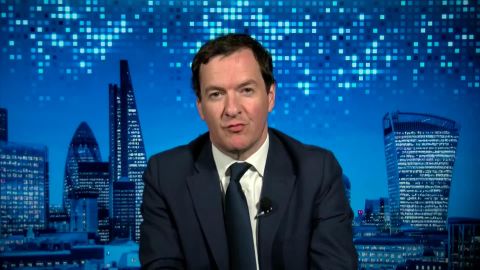Read Transcript EXPAND
CHRISTIANE AMANPOUR: You know, 2020 is hindsight. But going forward, would a chancellor such as you or governments of any stripe or color have to rethink what you do with public services? Because, you know, these cuts matter when we’re faced with an emergency, as we can see from the United States to here to around the world.
GEORGE OSBORNE, FORMER U.K. CHANCELLOR OF THE EXCHEQUER: Well, you know, I have a very simple answer to that, which is, if after the financial crash, when I became the chancellor in 2010, we had not repaired the public finances, if we had not tried to fix the roof as the sun began to shine after that crisis, we would be in an absolutely catastrophic situation today. You know, if we were going into this crisis with the kind of budget deficit, I faced of 10 to 11 percent of GDP, if we hadn’t been on — getting on top of public debt, you know, we would now be facing a full- blown fiscal crisis. And unfortunately, some of the countries that did not take the measures that we took find themselves with that additional crisis as well as the jobs crisis as well as the health crisis. So, you know, we did put the public finances and the economy into a position where there were a record number of people at work, the money was coming into the Exchequer and we were able to support our health care precisely because you don’t know what lies ahead, has installed for you. And so, we did fix the roof when the sun was shining. And I, you know, would say, and it’s very early to talk about this, but when this whole crisis is over, the governments emerging from it are going to have very high levels of public debt, very high budget deficits. And the whole world, it wasn’t just the U.K. who, of course, went through this, are going to have to face a long-term repair job of getting those things back into balance. So, we’re ready for whatever next crisis is. We didn’t predict the global financial crisis. We didn’t predict this COVID-19 crisis. Who knows what the next crisis is going to be? All I know is you need to be well prepared to deal with it. That’s what the U.K. did over the past 10 years, which is as — actually why I think the NHS is probably the public health care system of any large advanced economy that is best placed to cope with the unfolding catastrophe as a result of this virus.
AMANPOUR: Except the World Bank says that we have, here in the U.K., less beds per capita than, for instance, in Italy.
OSBORNE: Well, I don’t think — you know, and with the greatest respect to, you know, Italy, I’m not sure Italy is being held up at the moment as a model of how to handle this crisis. You know, I think you would be better to look at places like South Korea and Singapore. You know, these are democracies. You know, they’re not — their kind of — you know, they’re not the sort of Chinese model of running a society. They’re models of society we can relate to. I think they have set the benchmark. I think any western government — we haven’t, by the way, talked about the — you know, the potential disaster in the developing world, but in the developed government, will look to South Korea, look to Singapore. They will be judged by their own populations against the performance of those countries.
About This Episode EXPAND
George Osborne, former UK Chancellor of the Exchequer, explains the state of affairs in London amidst the coronavirus pandemic. Dr. David Ho tells Walter Isaacson about his work to develop a treatment for the virus. Richard Ratcliffe discusses his wife’s temporary release from an Iranian prison. Actor Brian Cox discusses the impact of the pandemic on theatre and the arts.
LEARN MORE



